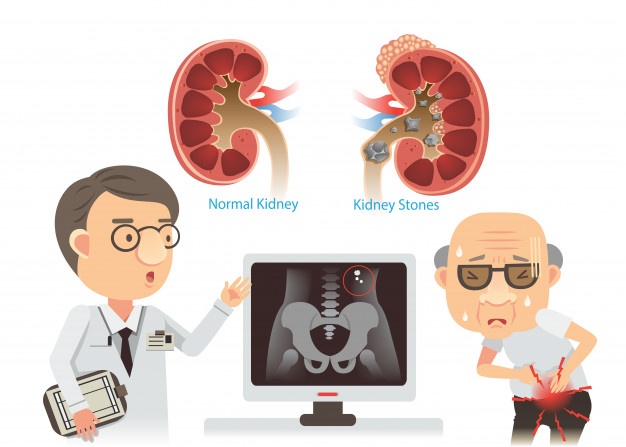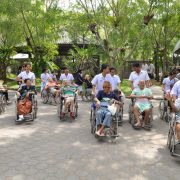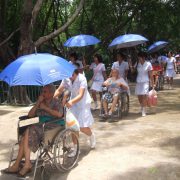Your kidneys are two bean-shaped organs, each about the size of your fist. They´re located at the back of your upper abdomen, on either side of your spine. Your kidneys are part of a system that removes excess fluid and waste material from your blood.
Chronic renal failure (renal = kidney) is a gradual and progressive loss of the ability of the kidneys to excrete waste, concentrate urine, and conserve electrolytes (minerals in your body).
Nature of Disease
Chronic renal failure usually occurs over a number of years as the internal structures of the kidney are slowly damaged. In the early stages there may be no symptoms.
Diabetes and hypertension (high blood pressure) are the two most common causes of chronic renal failure and ESRD (end-stage renal disease).
Signs and Symptoms
Chronic renal failure results in the accumulation of fluid and waste products in the body.
Initial symptoms may include nausea, general ill feeling, fatigue, headache, hiccups and itching.
Later symptoms may include need to urinate at night, easy bruising or bleeding, blood in vomit or in stools, decreased alertness, muscle twitching or cramps, seizures and deceased sensation in the hands, feet, or other areas.
Treatment
The main goal of treatment of chronic kidney failure is to halt or delay progression of the disease.
Chronic kidney failure can progress to end-stage kidney disease, where the kidneys function at a fraction of normal capacity. At this point, you´ll need either artificial filtering (dialysis) or a kidney transplant to stay alive.
The following are general dietary guidelines:
Protein restriction : After your body uses protein, a waste product called urea is made. If you have lost kidney function, your kidneys may not be able to get rid of this urea normally. You may need to reduce the amount of protein you eat to avoid buildup of urea in your body.
– Salt restriction : Limit to 4–6 grams a day to avoid fluid retention and help control high blood pressure.
– Fluid intake : Excessive water intake does not help prevent kidney disease. In fact, your doctor may recommend restriction of water intake.
– Potassium restriction : This is necessary in advanced kidney disease because the kidneys are unable to remove potassium. High levels of potassium can cause abnormal heart rhythms. Examples of foods high in potassium include bananas, oranges, nuts, and potatoes.
– Phosphorus restriction : When your kidneys have stopped working normally, phosphorus may build up in your blood. Too much phosphorus in your blood leads to loss of calcium from your bones, which weakens them over time.
Decreasing phosphorus intake is recommended to protect bones. Eggs, beans, cola drinks, and dairy products are examples of foods high in phosphorus.



















